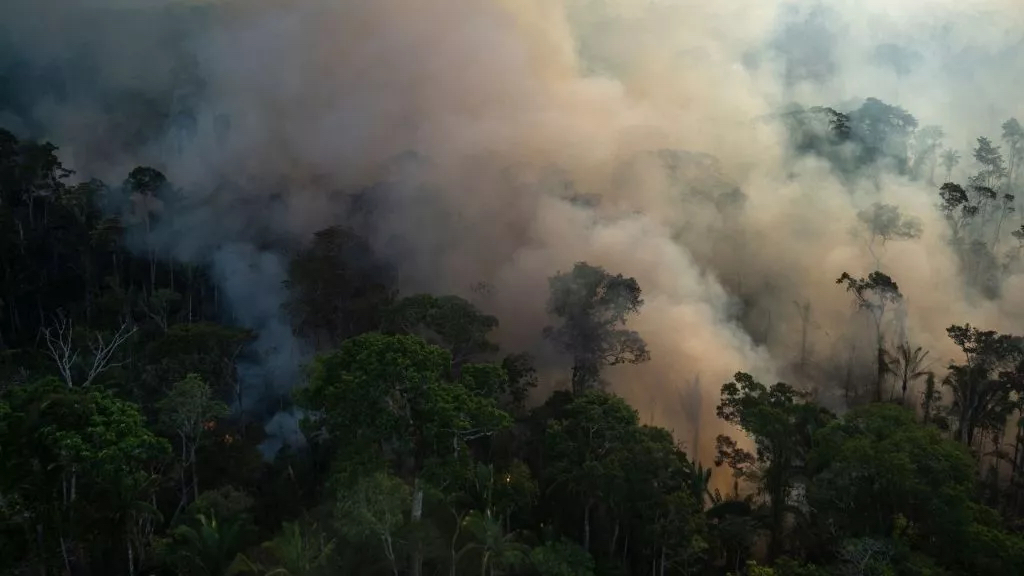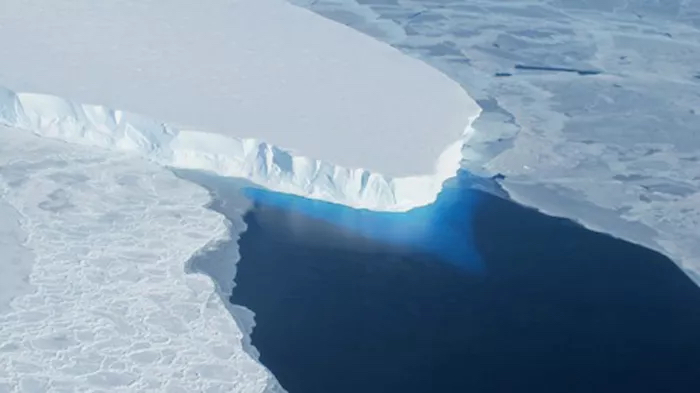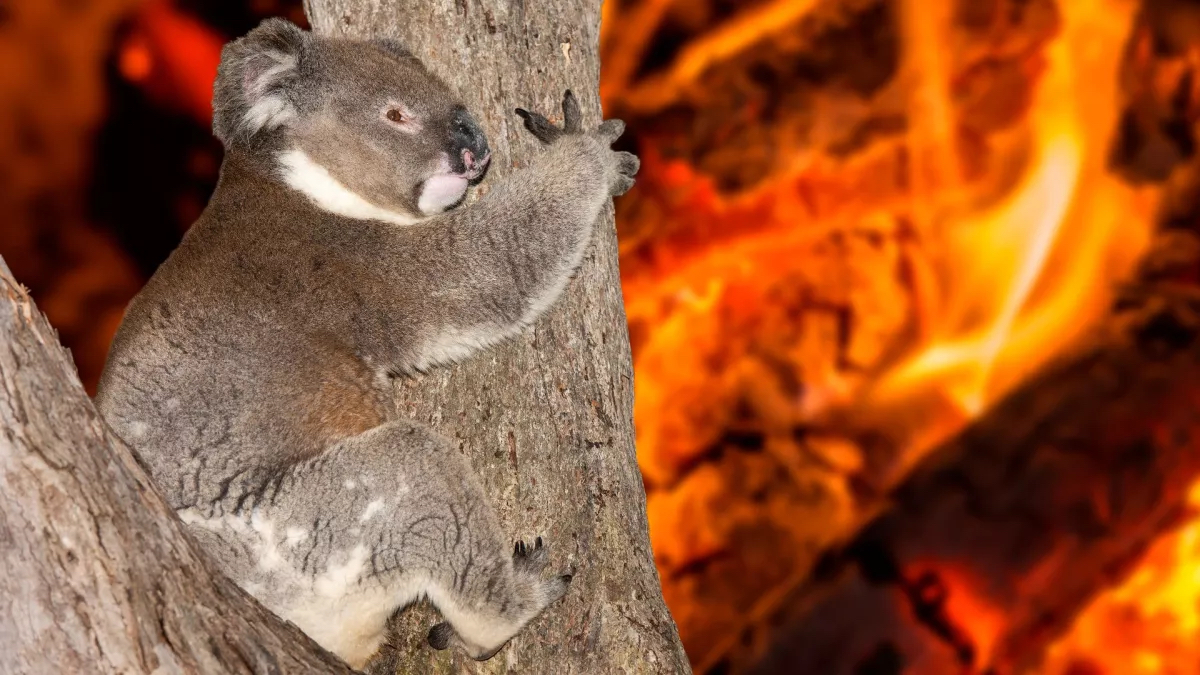Catastrophic climate 'doom loops' could start in just 15 years, new study warns
Climate "tipping points," such as the loss of the Amazon rainforest or the collapse of the Greenland ice sheet, could come within a human lifetime, scientists have said.

Breaking space news, the latest updates on rocket launches, skywatching events and more!
You are now subscribed
Your newsletter sign-up was successful
Want to add more newsletters?

Delivered daily
Daily Newsletter
Breaking space news, the latest updates on rocket launches, skywatching events and more!

Once a month
Watch This Space
Sign up to our monthly entertainment newsletter to keep up with all our coverage of the latest sci-fi and space movies, tv shows, games and books.

Once a week
Night Sky This Week
Discover this week's must-see night sky events, moon phases, and stunning astrophotos. Sign up for our skywatching newsletter and explore the universe with us!

Twice a month
Strange New Words
Space.com's Sci-Fi Reader's Club. Read a sci-fi short story every month and join a virtual community of fellow science fiction fans!
Earth's ecosystems may be careering toward collapse much sooner than scientists thought, a new study of our planet's warming climate has warned.
According to the research, more than a fifth of the world's potentially catastrophic tipping points — such as the melting of the Arctic permafrost, the collapse of the Greenland ice sheet and the sudden transformation of the Amazon rainforest into savanna — could occur as soon as 2038.
In climatology, a "tipping point" is the threshold beyond which a localized climate system, or "tipping element," irreversibly changes. For instance, if the Greenland ice sheet were to collapse, it would also reduce snowfall in the northern part of the island, making large parts of the sheet irretrievable.
Related: Climate 'points of no return' may be much closer than we thought
Yet the science behind these dramatic transformations is poorly understood and often based on oversimplified models. Now, a new attempt to understand their inner workings, published June 22 in the journal Nature, has revealed that they may happen much sooner than we thought.
"Over a fifth of ecosystems worldwide are in danger of collapsing," co-author Simon Willcock, a professor of sustainability at Bangor University in the U.K., said in a statement. "However, ongoing stresses and extreme events interact to accelerate rapid changes that may well be out of our control. Once these reach a tipping point, it's too late."
Unlike the well-established link between the burning of fossil fuels and climate change, the study of tipping points is a young and contentious science.
Breaking space news, the latest updates on rocket launches, skywatching events and more!
To understand how rising temperatures and other environmental stressors could cause complex ecosystems to break down, scientists use computer models to simplify ecosystems' dynamics, enabling them to predict the fate of those ecosystems — and when their tipping points could be reached.
But if these simulations miss an important element or interaction, their forecasts can land decades off the mark. For example, the Intergovernmental Panel on Climate Change (the United Nations' most important body for evaluating climate science) said in its most recent report that the Amazon rainforest could reach a tipping point that will transform it into a savannah by 2100.
The researchers behind the new study say this prediction is too optimistic.
According to the researchers, most tipping-point studies build the math in their models to focus on one predominant driver of collapse, for example deforestation in the Amazon rainforest. However, ecosystems aren't contending with just one problem but rather a swarm of destabilizing factors that compound one another. For example, the Amazon also faces rising temperatures, soil degradation, water pollution and water stress.
To investigate how these elements interact and whether these interactions can, in fact, hasten a system's demise, the scientists behind the new study built computer models of two lake and two forest ecosystems (including one which modeled the collapse of civilization on Easter Island) and ran them more than 70,000 times while adjusting the variables throughout.
After testing their systems across multiple modes — with just one cause of collapse acting, with multiple causes acting and with all of the causes plus the introduction of random noise to mimic fluctuations in climate variables — the scientists made some troubling findings: multiple causes of collapse acting together brought the abrupt transformation of some systems up to 80% closer to the present day.
And even when the main cause of collapse was not allowed to increase with time, 15% of the collapses occurred purely because of the new elements.
"Our main finding from four ecological models was that ecosystems could collapse 30-80% earlier depending on the nature of additional stress," co-author John Dearing, a professor of physical geography at Southampton University in the U.K. told Live Science in an email. "So if previous tipping points were forecast for 2100 (i.e. 77 years from now) we are suggesting these could happen 23 to 62 years earlier depending on the nature of the stresses."
This means that significant social and economic costs from climate change might come much sooner than expected, leaving governments with even less time to react than first thought.
"This has potentially profound implications for our perception of future ecological risks," co-author Gregory Cooper, a climate systems researcher at the University of Sheffield in the U.K., said in the statement. "While it is not currently possible to predict how climate-induced tipping points and the effects of local human actions on ecosystems will connect, our findings show the potential for each to reinforce the other. Any increasing pressure on ecosystems will be exceedingly detrimental and could have dangerous consequences."

Ben Turner is a U.K. based staff writer at Live Science. He covers physics and astronomy, among other topics like weird animals and climate change. He graduated from University College London with a degree in particle physics before training as a journalist. When he's not writing, Ben enjoys reading literature, playing the guitar and embarrassing himself with chess.



